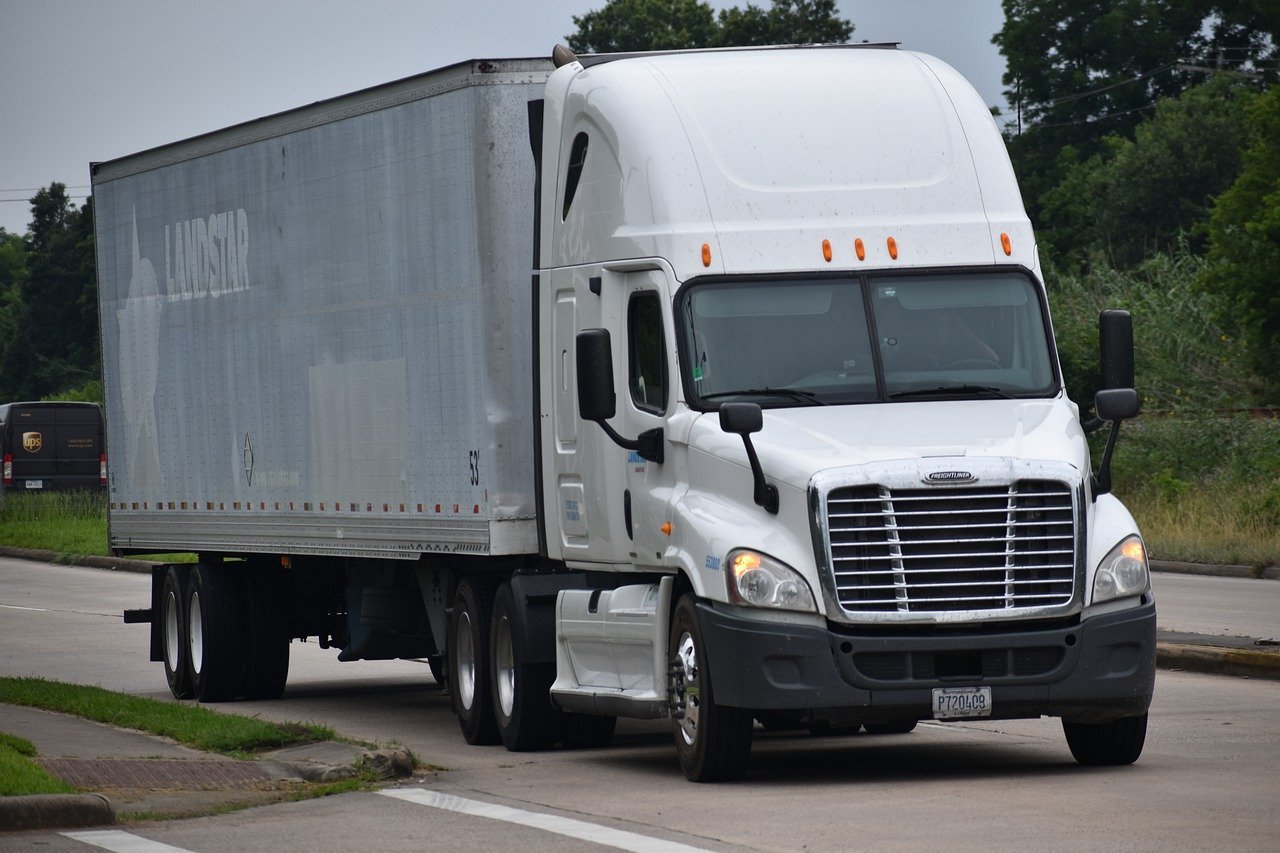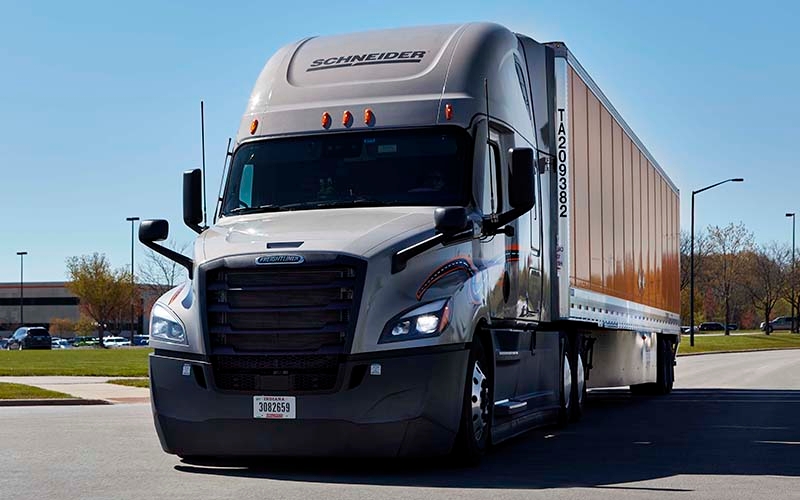A standard truck weighs between 15,000 to 25,000 pounds. The weight can vary depending on the type and size of the truck.
Trucks play a significant role in various industries, from transportation and logistics to construction and agriculture. Knowing how much does a truck weigh is important for safety, compliance, and operational efficiency. Whether you are a driver, fleet manager, or simply curious about trucks, knowing their weight is essential.
We’ll explore the factors that contribute to a truck’s weight, the different classifications of trucks based on weight, and the implications of truck weight in different applications. By the end, you’ll have a comprehensive understanding of the weight of trucks and its significance in various contexts.

Credit: www.millerandzois.com
Contents
- 1 Truck Weight
- 2 Factors Influencing Truck Weight
- 3 Weighing Trucks: Methods And Tools
- 4 The Heavyweights: Semi-trucks And 18-wheelers
- 5 Lighter Companions: Pickup Trucks And Vans
- 6 Payload Capacity Vs. Tare Weight
- 7 Implications Of Truck Weight On Infrastructure
- 8 Legal Limits And Penalties
- 9 Innovations In Truck Design
- 10 Environmental And Economic Impact
- 11 Frequently Asked Questions
- 12 Conclusion
Truck Weight
The weight of trucks is important for various reasons, including safety, infrastructure maintenance, and compliance with regulations. It plays a significant role in determining its impact on roads, bridges, and the environment.
Types Of Trucks and Categories
Trucks come in various types, each serving different purposes and carrying different loads. The weight of a truck largely depends on its type and category. Below are some common types of trucks and their respective categories:
- Light Trucks: These trucks typically weigh between 3,000 and 6,000 pounds and are commonly used for small-scale transportation and deliveries.
- Medium Trucks: Falling in the range of 6,001 to 10,000 pounds, medium trucks are often employed for local and regional transportation of goods.
- Heavy Trucks: Weighing over 10,000 pounds, heavy trucks are utilized for long-haul transportation and carrying substantial loads.
Regulations Governing Truck Weight
Truck weight regulations are established to ensure the safety of road users and the integrity of transportation infrastructure. These regulations govern various aspects of truck weight, including maximum allowable weights for different types of trucks, axle weight limits, and permissible gross vehicle weight. It’s important for truck operators and companies to adhere to these regulations to avoid fines, penalties, and potential damage to roads and bridges.
Factors Influencing Truck Weight
Truck weight is influenced by several factors, including the type of truck, its components, and the cargo it carries. Various elements such as the chassis, engine, transmission, and axles contribute to the overall weight of a truck. Additionally, the weight of the cargo being transported can significantly impact the total weight of the truck.
Material Composition
The material composition of a truck is one of the primary factors that contribute to its weight. Different materials have varying densities, which directly impact the overall weight of the truck. For instance, trucks made primarily of steel tend to be heavier compared to those constructed using aluminum or composite materials. By using lighter materials in the truck’s construction, manufacturers can reduce its weight while maintaining its structural integrity. This, in turn, can lead to improved fuel efficiency and increased payload capacity.
Truck Size and Dimensions
The size and dimensions of a truck also play a significant role in determining its weight. Larger trucks typically have a higher weight due to the additional materials required for their construction. This includes a larger chassis, bigger engines, and additional components to support the increased size and weight.
Moreover, trucks with larger dimensions often have a higher payload capacity, allowing them to carry more goods. However, it is essential to ensure that the truck’s weight remains within the legal limits set by transportation authorities to ensure safe and efficient operation on the road.
Weighing Trucks: Methods And Tools
Discover the various methods and tools used for weighing trucks to determine their weight accurately. By utilizing precise weighing equipment, such as weighbridges and portable scales, truck weights can be measured with accuracy.
Portable Weigh Pads
Portable weigh pads provide a convenient way to weigh trucks on-the-go.
Weigh Stations And Their Role
Weigh stations play a crucial role in ensuring trucks are within legal weight limits.
The Heavyweights: Semi-trucks And 18-wheelers
Semi-trucks and 18-wheelers are the heavyweights of the road, capable of carrying substantial loads across long distances. These massive vehicles play a vital role in various industries, including transportation, logistics, and shipping.
Average Weights Of Semi-trucks
Semi-trucks, also known as tractor-trailers or big rigs, are designed to haul heavy loads. On average, a semi-truck without any cargo or trailer weighs around 15,000 to 25,000 pounds (6,800 to 11,300 kilograms). However, when fully loaded, the weight can increase significantly, reaching up to 80,000 pounds (36,287 kilograms) in the United States.
It’s important to note that the weight of semi-trucks can vary depending on several factors, including the type of truck, its configuration, and the specific regulations of different regions. For instance, in Europe, the weight limits for semi-trucks are generally lower compared to those in the United States.
The Role Of Trailers In Total Weight
The weight of a semi-truck is further augmented by the trailers it carries. Trailers come in different sizes and types, such as flatbeds, refrigerated trailers, and dry vans. These trailers can weigh anywhere from 10,000 to 25,000 pounds (4,500 to 11,300 kilograms) when empty.
When coupled with a trailer, a semi-truck’s total weight can increase significantly. The most common configuration consists of a tractor unit, which is the front part of the semi-truck, coupled with a trailer that has two axles. This configuration is often referred to as a standard tandem axle trailer. The weight of the cargo carried by the trailer must be distributed properly to ensure stability and safety during transportation.
It’s worth mentioning that certain types of trailers, such as double-decker car carriers or specialized heavy-haul trailers, can further increase the total weight of a semi-truck combination. These trailers are specifically designed to transport oversized or specialized cargo, and they require special permits and escorts due to their exceptional weight.
Lighter Companions: Pickup Trucks And Vans
Pickup trucks and vans are popular lighter companions for various purposes. When it comes to determining their weight, it depends on the specific make and model. However, the weight of a truck typically ranges from 4,000 to 6,000 pounds, while vans can weigh between 5,000 and 8,000 pounds.
Typical Weights Of Light-duty Trucks
If you’re in the market for a light-duty truck, you’re probably wondering how much it weighs. On average, a light-duty pickup truck weighs between 4,000 and 6,000 pounds. However, the weight can vary depending on the make and model. For example, a Ford F-150 can weigh anywhere from 4,000 to 5,000 pounds, while a Chevrolet Silverado can weigh between 4,500 and 5,500 pounds.
Vans And Their Place In The Weight Spectrum
Vans are another popular option for those in need of a vehicle with cargo space. The weight of a van can vary greatly depending on the size and purpose of the vehicle. A typical full-size van can weigh between 5,000 and 8,000 pounds, while a compact van can weigh between 3,000 and 5,000 pounds.
When it comes to cargo vans, the weight can vary depending on the amount of cargo they are designed to carry. For example, a Ford Transit Connect can weigh between 3,500 and 4,000 pounds, while a Mercedes-Benz Sprinter can weigh anywhere from 8,500 to 11,000 pounds.

Credit: www.jdpower.com
Payload Capacity Vs. Tare Weight
Truck weight is determined by its tare weight, which is the weight of the empty vehicle, and its payload capacity, which is the maximum weight it can carry. The tare weight plus the payload capacity equals the total weight of the truck when fully loaded.
Defining Payload Capacity
When it comes to trucks, payload capacity refers to the maximum weight a truck can carry in addition to its own weight. This includes the weight of the cargo, passengers, and any accessories that add to the overall weight of the vehicle. The payload capacity varies depending on the make and model of the truck, and it is important to know the payload capacity before loading the truck to avoid exceeding it and causing damage or safety issues.
Understanding Tare Weight
Tare weight, on the other hand, refers to the weight of the truck when it is empty and has no cargo or passengers. This weight includes the weight of the chassis, cab, engine, and any other components that make up the vehicle. Tare weight is important because it affects the payload capacity of the truck. The heavier the tare weight, the less weight the truck can carry as payload.
When determining how much a truck weighs, it is important to consider both the payload capacity and the tare weight. The payload capacity tells you how much weight you can add to the truck, while the tare weight tells you how much the truck weighs on its own. Together, they give you the total weight of the truck when it is loaded with cargo.
It is important to note that exceeding the payload capacity of a truck can be dangerous and can cause damage to the vehicle. Therefore, it is important to know the payload capacity and tare weight of a truck before loading it with cargo. By doing so, you can ensure that the truck is not overloaded and is safe to operate on the road.
Implications Of Truck Weight On Infrastructure
When considering the weight of trucks, it is important to understand the implications on infrastructure, particularly the impact on roads and bridges as well as the design considerations for infrastructure. The weight of trucks significantly affects the durability and longevity of infrastructure, making it essential to address these implications in the planning and maintenance of roads and bridges.
Effects On Roads And Bridges
The weight of trucks has a substantial impact on the wear and tear of roads and bridges. Heavy trucks exert immense pressure on the road surface, leading to premature deterioration and the formation of potholes. Similarly, the excessive weight of trucks can cause structural damage to bridges, compromising their stability and safety.
Design Considerations For Infrastructure
When designing infrastructure, engineers must carefully consider the weight of trucks to ensure the structural integrity and longevity of roads and bridges. Reinforced materials and enhanced support systems are essential to withstand the heavy loads imposed by trucks, thereby minimizing maintenance costs and ensuring the safety of transportation networks.
Legal Limits And Penalties
Maximum Allowed Weights
Trucks are subject to maximum weight limits set by regulatory authorities to ensure safety on the roads. The maximum allowed weight for trucks varies depending on factors such as the number of axles and the type of road. For instance, a typical five-axle truck may have a maximum legal weight of 80,000 pounds on interstate highways.
Consequences Of Overloading
Overloading a truck can have serious repercussions, both for the driver and the company. It can lead to fines, penalties, and even the suspension of the vehicle’s registration. In addition, overloading poses significant safety risks, such as increased braking distances and potential damage to roads and bridges. Furthermore, it can result in higher fuel consumption and accelerated wear and tear on the vehicle’s components.
Innovations In Truck Design
Revolutionary truck designs are reducing weight by utilizing advanced materials and streamlined structures. Understanding how much a truck weighs is crucial for optimizing performance and efficiency in transportation. Modern innovations focus on enhancing payload capacity while maintaining safety standards.
Trucks have been a crucial part of the transportation industry for decades. Over time, truck manufacturers have been working on innovative designs to make trucks more efficient, safer, and environmentally friendly. One of the main areas where innovation has been focused is the weight of trucks. The heavier a truck is, the more fuel it consumes, and the more it contributes to environmental pollution. In this blog post, we will discuss the innovations in truck design that have helped reduce the weight of trucks.
Materials And Technologies Reducing Truck Weight
Truck manufacturers have been experimenting with different materials and technologies to reduce the weight of trucks. One of the most significant innovations in this area has been the use of aluminum. By using aluminum instead of steel, truck manufacturers can reduce the weight of the truck without compromising on strength. In addition to aluminum, manufacturers have also started using high-strength steel and composite materials to reduce weight.
Another technology that has helped reduce truck weight is the use of aerodynamics. By designing the truck in a way that reduces wind resistance, manufacturers can reduce the weight of the truck while also increasing fuel efficiency. Aerodynamic features such as side skirts, trailer tails, and fairings have become increasingly popular in the trucking industry.
Future Trends In Truck Manufacturing
Looking ahead, there are several trends in truck manufacturing that are expected to reduce the weight of trucks even further. One of these trends is the use of 3D printing technology. With 3D printing, truck manufacturers can create lightweight parts that are stronger and more durable than traditional parts.
Another trend that is expected to gain popularity in the trucking industry is the use of electric and hybrid trucks. Electric and hybrid trucks are lighter than traditional trucks because they do not require heavy engines or fuel tanks. They are also more environmentally friendly, as they produce fewer emissions.

Credit: schneiderjobs.com
Environmental And Economic Impact
Truck weight impacts both environment and economy, with fuel consumption and road wear directly linked to weight. Heavier trucks lead to increased emissions and higher maintenance costs, affecting infrastructure and overall transportation efficiency. Balancing weight regulations is crucial for sustainable logistics and economic growth.
Trucks are an essential part of the transportation industry, but they can have a significant impact on the environment and economy. The weight of a truck is one of the critical factors affecting its environmental and economic impact. In this article, we will look at how the weight of a truck affects fuel efficiency and cost of hauling heavy loads.
Fuel Efficiency And Weight
The weight of a truck has a significant impact on its fuel efficiency. The heavier the truck, the more fuel it needs to move. According to the US Department of Energy, every extra 100 pounds of weight reduces a truck’s fuel efficiency by 1-2%. For example, a 10,000-pound truck will be 10-20% less fuel-efficient than an 8,000-pound truck. Therefore, trucking companies need to ensure that they minimize the weight of their trucks to maximize fuel efficiency and reduce emissions.
The Cost Of Hauling Heavy Loads
The weight of a truck also affects the cost of hauling heavy loads. Trucks have a maximum weight limit, and exceeding this limit can result in fines. Additionally, hauling heavy loads increases wear and tear on the truck, which can result in higher maintenance costs. Therefore, trucking companies need to balance the weight of their trucks with the need to haul heavy loads to minimize costs.
| Weight of Truck | Fuel Efficiency Reduction |
|---|---|
| 10,000 pounds | 10-20% |
| 20,000 pounds | 20-40% |
| 30,000 pounds | 30-60% |
In conclusion, the weight of a truck has a significant impact on its environmental and economic impact. Trucking companies need to balance the weight of their trucks with the need to haul heavy loads to maximize fuel efficiency and reduce costs. By doing so, they can minimize their impact on the environment and improve their bottom line.
Frequently Asked Questions
Here are some FAQs about truck weight –
How Much Does An Average Truck Weigh?
The average weight of a truck is around 33,000 pounds. This weight can vary based on the type and size of the truck.
How Many Pounds Is A 1500 Truck?
A 1500 truck typically weighs around 5,000 to 7,000 pounds.
How Much Does A Dump Truck Weigh In Tons?
A dump truck typically weighs between 20 to 80 tons, depending on its size and capacity.
What Trucks Weigh 1 Ton?
Trucks that weigh 1 ton include popular models like Ford F-150, Chevrolet Silverado 1500, and RAM 1500.
Conclusion
Knowing how much does a truck weigh impacts road infrastructure and transportation logistics. By learning about truck weights, one can appreciate the significance of weight limits and distribution for efficient and safe truck operations.
